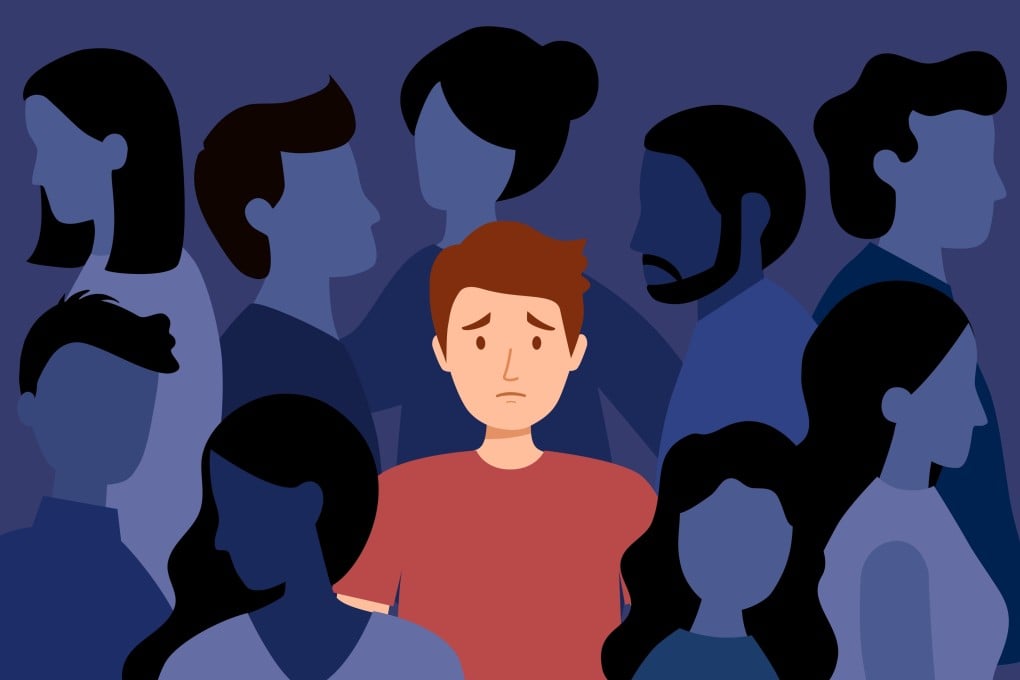
Understanding social anxiety: symptoms, misconceptions and how to seek help
The condition is marked by an intense fear of social situations and judgment from others.





According to the article, why can this condition particularly affect young people?


What are some symptoms of social anxiety disorder?


According to Dr Fung, what are some misconceptions about social anxiety disorder?


According to the article, why can this condition particularly affect young people?


Difficulty: Summiteer (Level 3)
We’ve all felt anxious when meeting someone new or giving a speech. Most of us can learn to deal with this nervousness. Still, Ken Fung, a clinical psychologist at Jadis Blurton Family Development Centre in Hong Kong, says social anxiety can make these situations even harder to handle.
What is social anxiety?
According to Fung, social anxiety disorder, also referred to as social phobia, is an intense, out-of-proportion fear of being judged by others in a social situation.
People with social anxiety disorder feel very worried about meeting new people or going to parties. They often avoid these situations because they fear making mistakes or feeling embarrassed. This is because they believe they will be judged and seen as incompetent.
Symptoms of this condition include blushing, sweaty palms, uncontrollable trembling, and stumbling over one’s words. Some might experience heart palpitations or sudden urges to go to the toilet. Another symptom is tunnel vision, heightening the feeling of the world closing in.
In the classroom, the psychologist said that students with social anxiety disorder could be excessively conscious about negative feedback from peers and may struggle with presentations.
With online learning, these students might still struggle when they need to turn on their cameras, type responses in group chats, or turn on their microphones to answer questions.

The key misconceptions
Fung also addressed a few misconceptions about social anxiety disorder – the most common being that all introverts have the condition.
“Both extroverts and introverts can ... feel judged at times. But those who do not have social anxiety disorder can manage such feelings, and most importantly, this does not affect their day-to-day life,” Fung said. Those without the condition are more likely to find ways to handle uncomfortable situations rather than avoid them.
Fung has three questions for those unsure about whether they might be experiencing this condition to help determine if the feeling could be more than just general unease.
-
Do you feel very anxious in certain social situations?
-
Does that feeling last for at least six months?
-
Does your response to it negatively affect your daily life?
If you answered yes to all three questions, Fung recommended seeing a professional therapist for help.
“It is important to know that these seemingly uncontrollable anxious feelings are not the end of the world … with proper treatment, you can snap out of the anxiety cycle,” he said.
Suggested answers
Stop and think: Young people are going through changes and building up their self image. They are also trying to establish social lives, and there is a lot of change. Also, young people are often put into situations where they must be social, even if they don’t want to. For example, during class, students might be forced to participate, answer questions, or work in group projects with people they don’t know well.
Think about it: People with social anxiety disorder may have symptoms like trembling, sweaty palms, blushing, and being unable to speak without stuttering. Additionally, some might have heart palpitations, tunnel vision, or the need to suddenly go to the toilet.
Stop and think: Dr Fung said that while many think social anxiety is specific to introverts, both introverts and extroverts can have this condition.



having a fast-beating or pounding heart
a condition in which people can only see what they are looking at directly
not being good enough or able to do things
an incorrect stereotype about something
a fear of something
shaking

having a fast-beating or pounding heart
a condition in which people can only see what they are looking at directly
not being good enough or able to do things
an incorrect stereotype about something
a fear of something
shaking


What are some symptoms of social anxiety disorder?


According to Dr Fung, what are some misconceptions about social anxiety disorder?